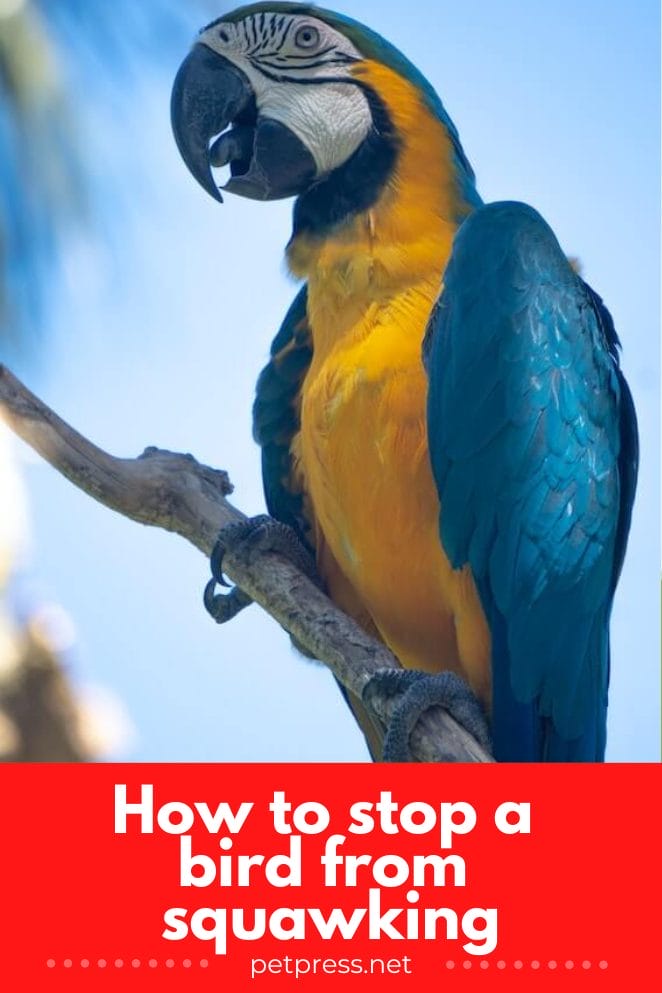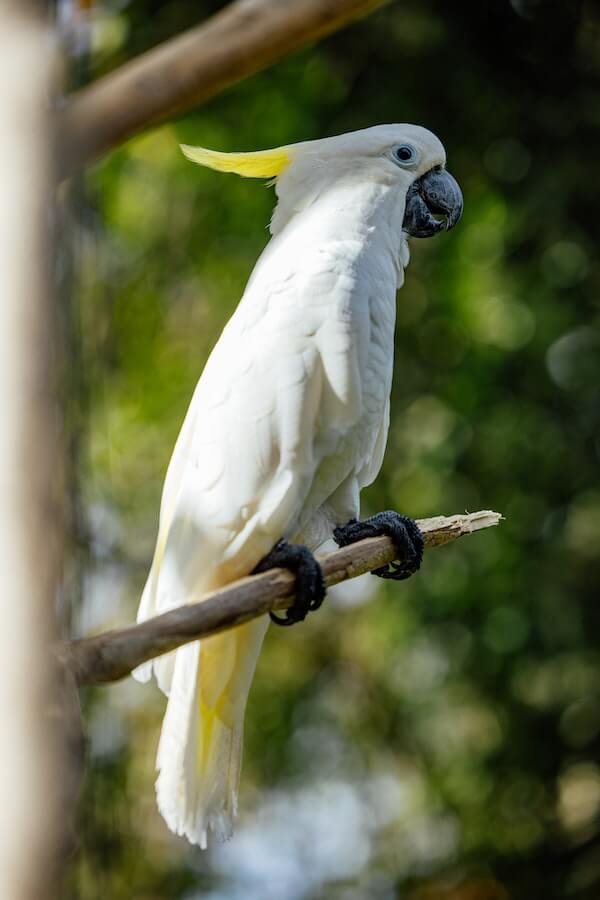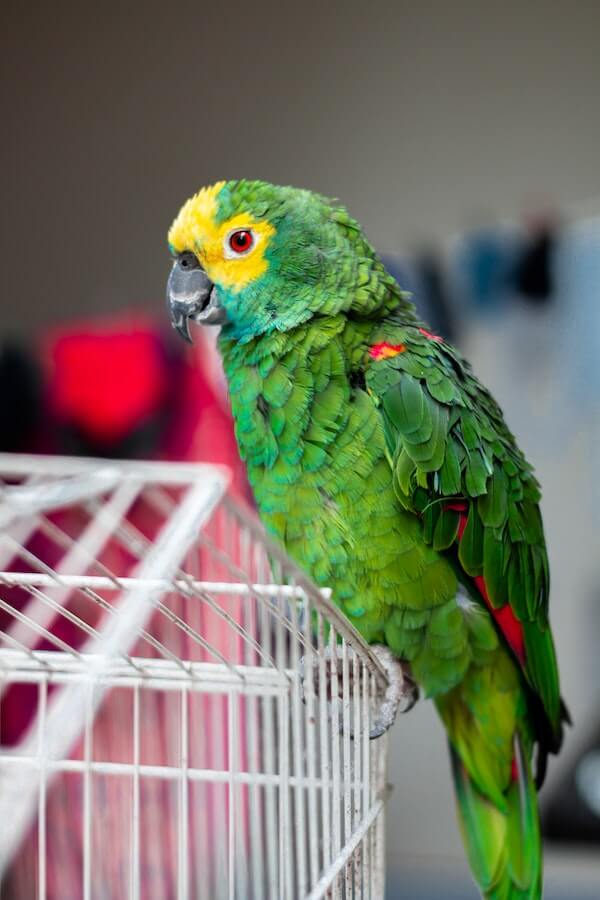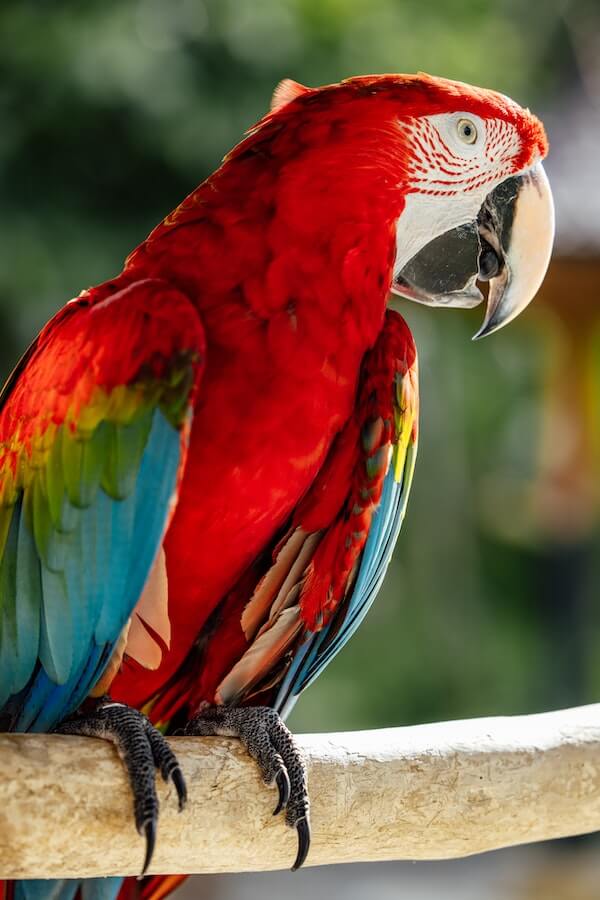
With a bird in the house, you can be sure that its melodious tunes will bring life into your home. But when it starts to make too much noise, you may start to wonder how to stop the bird from squawking.
Fortunately, there are a few tips and tricks you can use to keep your feathered friend’s talks at an appropriate level.
From reducing noise levels in the environment to making sure they have plenty of toys and activities to occupy themselves with, there are many steps you can take to put a halt to their incessant squawking.
With just a bit of effort and patience, soon enough your home will be filled with only pleasant birdsong!
Let’s begin by addressing the most common question that every bird owner has.
Why is my bird squawking so much?

If your feathered friend is keeping you up at night with their incessant squawking, it’s time to figure out why.
There are a few common reasons that birds make all that noise and knowing the cause can help you put an end to it. Here are five possible explanations for why your bird is so vocal:
1. Boredom:
Your bird might just be bored or lonely. Squawking could be their way of saying they need more stimulation or attention from you.
Try spending extra time talking and playing with them during the day, like giving them a new toy or rotating different perches around the cage.
2. Communication:
If there’s another bird in the area, yours might be trying to communicate with them. Social birds like parrots and cockatiels just can’t help but to chirp and chatter away.
If this is the case, you might want to consider getting a companion bird for your little one.
3. Territorial Behavior:
Birds are also territorial creatures and they often squawk when they feel their space is being invaded.
If there’s someone new in the house or a pet that comes too close, your feathered friend could be trying to make it known that this is its territory!
4. Something is not right:
Squawking could also signal that something needs to be fixed inside the cage or aviary – maybe it’s time for some fresh food and water or a thorough cleaning of the environment.
Pay special attention to the perches and toys – if they look a bit worn down, it’s time for some new ones.
5. Wanting something:
Lastly, birds might be trying to tell you something when they squawk – like that they’re hungry or thirsty!
Pay attention to your bird’s vocalizations and see if it matches up with any needs they may have.
No matter what the reason is that your bird is so chatty, there are ways to help reduce their noise levels.
How to stop a bird from squawking

Are you tired of your birdy buddy making more noise than a rock concert? Have no fear, we have the perfect 7-step guide to help keep the peace in your home.
Step #1
Assess why your bird is squawking. Is it due to hunger or thirst, being scared or startled, loneliness or boredom, or attention-seeking behavior?
Knowing these can help you better tailor strategies for each particular situation.
Step #2
Provide your bird with adequate levels of stimulation and interaction. This may mean providing toys so that it stays occupied and entertained when you’re not available to give them attention.
You could also take time out of your day to spend quality time with them in order to prevent boredom from setting in.
Step #3
If your bird is squawking due to hunger or thirst, make sure they are given a balanced diet that meets their nutritional needs and refresh their water daily.
A healthy bird is less likely to resort to excessive vocalizations as an emotional outlet.
Step #4
Once you’ve determined the underlying cause of your bird’s behavior, it’s time to start training them. Positive reinforcement is often effective for birds who just need a little guidance.
Reward them with treats when they remain quiet and ignore squawks when they occur – this helps teach them what type of behavior will be rewarded and which will not.
Step #5
Make sure your bird’s living environment has plenty of places for it to perch, hide, play, and explore.
This will give them more of an opportunity to express their natural behaviors without resorting to excessive vocalization.
Step #6
If your bird is scared or startled easily, try desensitizing it by introducing it gradually to different noises and environments.
Start small and work your way up as your bird becomes more comfortable with the situation.
Step #7
Lastly, provide plenty of time for sleep! A well-rested bird is much less likely to be squawking all day long than one who has been deprived of restful sleep.
By following these steps, you’ll soon have a quiet little buddy that you can enjoy having around instead of dreading due to its deafening squawks!
Conclusion

So there you have it – some practical tips on how to stop a bird from squawking.
Birds make great pets for kids, but they need proper training too.
From making sure that they are getting enough attention, to distracting them with toys and treats, there are many ways to reduce their vocalizations.
Of course, if the problem persists and your bird is still excessively squawking even after trying all of these methods, you should consult a vet or avian specialist for further advice.
Good luck and happy bird-whispering!
- 7 Dog Breeds With Webbed Feet And Why Do They Have Them - July 19, 2023
- 10 Best Fish For Small Tanks That Make Perfect Pets - July 18, 2023
- How to Breed Guinea Pigs: A Detailed Guide - July 17, 2023


GIPHY App Key not set. Please check settings